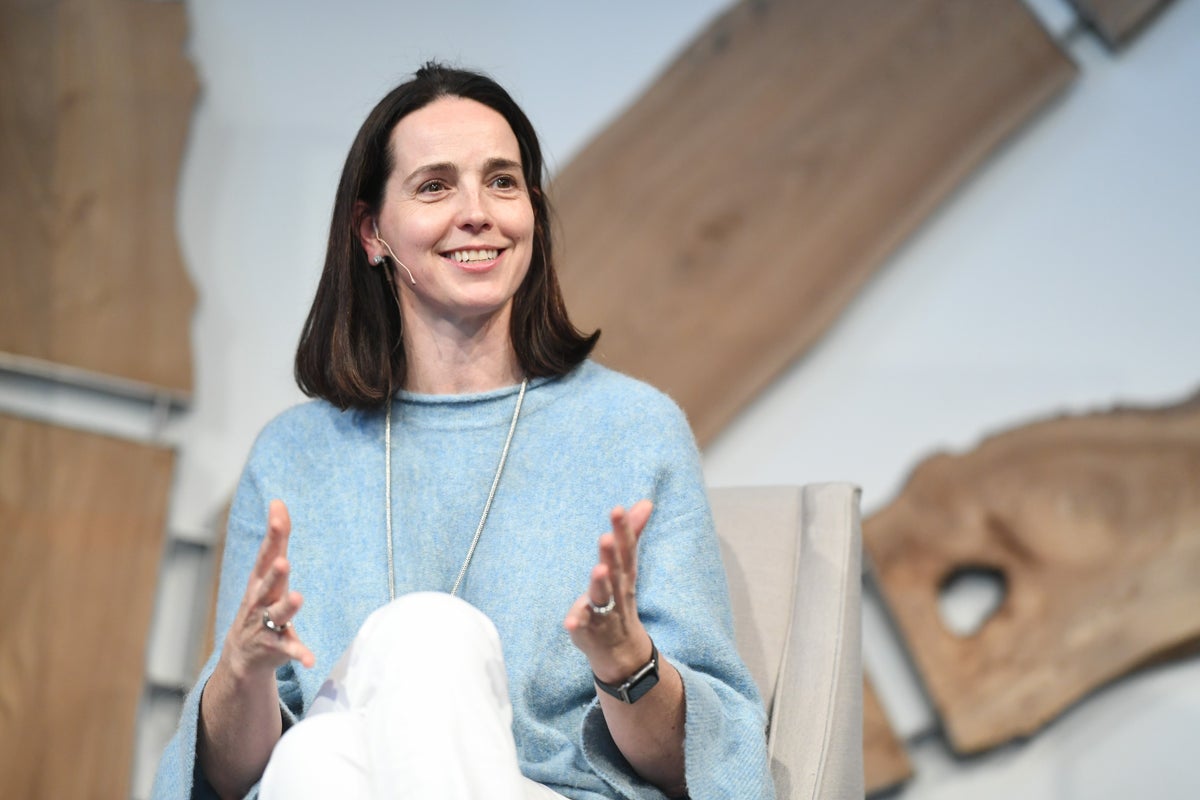
From bigotry and rudeness to endlessly polarised arguments that leave everyone involved angry, social media can be a pretty unpleasant place sometimes.
But local networking app Nextdoor aims to change all that, and is going so far as using AI to encourage users to be “kinder” in their conversations with their neighbours, both real and virtual.
As one of the few female CEOs in Silicon Valley, Sarah Friar has faced her own challenges in overcoming prejudice to rise to the top.
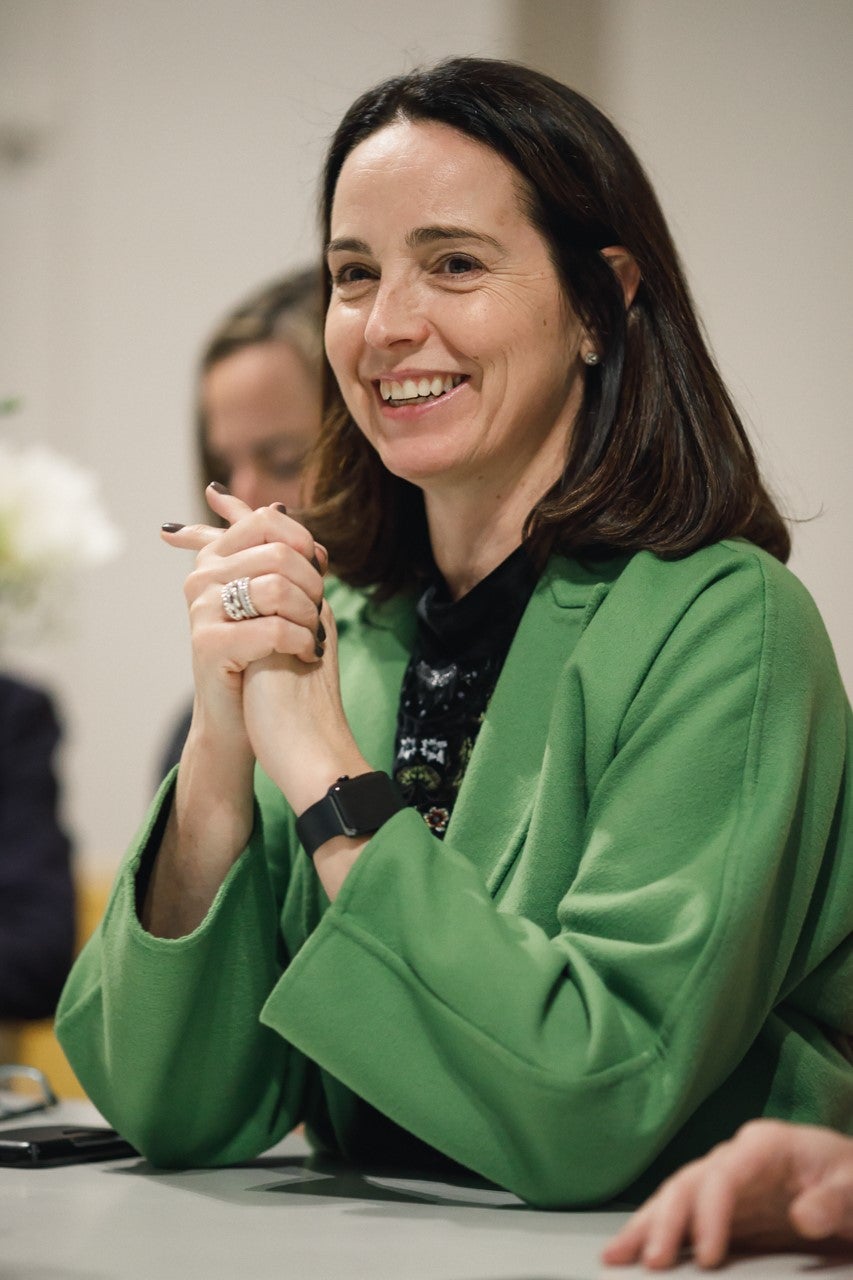
Now living and working in San Francisco, the County Tyrone native tells The Independent her journey has not been easy, having frequently found herself in rooms with few if any other women.
She is talking about the reality “no one wants to hear” – that “you do have to work harder as a woman” in the tech and business worlds. According to Harvard University’s Gender Diversity in the Silicon Valley report, less than 5 per cent of the top 150 public tech companies in Silicon Valley have women as CEOs.
Friar describes how her journey to becoming CEO of a community-based company is rooted in her childhood experiences, as her mum and dad “were Nextdoor before the internet”.
“We sat down for dinner and inevitably there would be a knock at the door,” she says. “Whatever they [the neighbours] needed, my parents would be there. There was an inordinate sense of a community helping itself because no one else was coming for you.
“When my idealism is at its maximum for Nextdoor, it’s that feeling – the sense of community and changing the world at a grassroots level.”
Launching in 2008, Nextdoor aims to connect people with others in their local area and is now used by more than 305,000 neighbourhoods around the world including one in four UK households.
Dubbed the “friendly” social media app, it allows users to offer and receive help from people living nearby, and meet those they might otherwise not come across in real life.
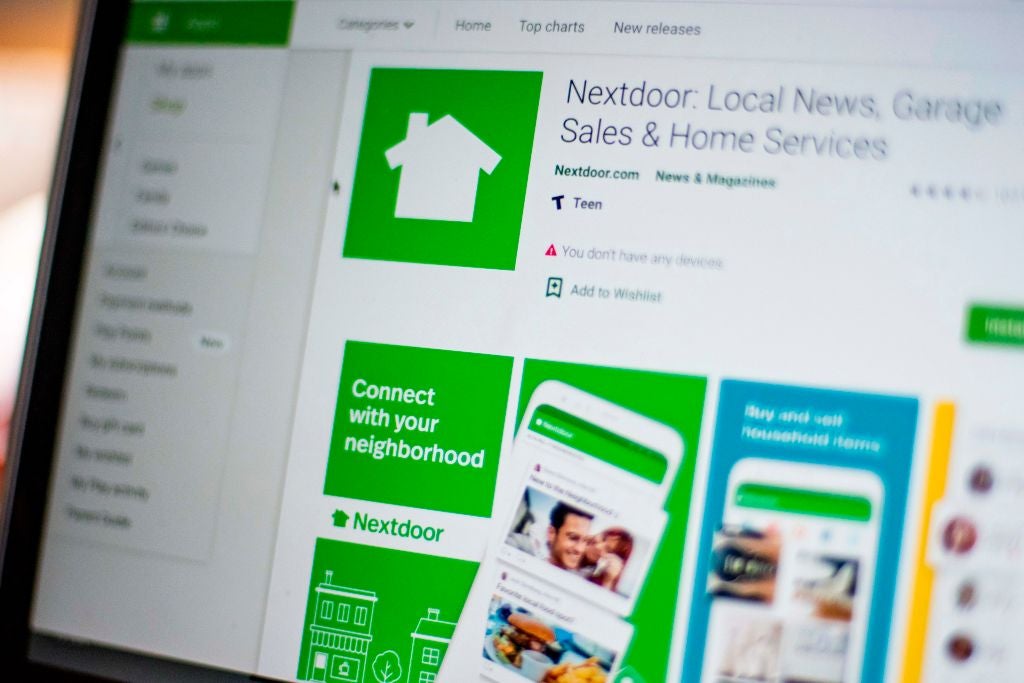
In a departure from other social platforms, members have to use their real names and addresses when posting, which helps to prevent trolling and bots online, and “kindness” reminders using artificial intelligence encourage users to rephrase abusive language.
Amid the rise of identity politics, Friar says she wishes there was more of an attitude of “we’re all human, we’re all together”, although she is optimistic current divisions will not last forever.
She says her experiences growing up in Northern Ireland should inspire hope: “The Northern Irish hated each other, but somehow they got together and made peace – and it has stuck.”
Friar recently returned to her home country to celebrate the anniversary of the Good Friday Agreement, where she sat on a panel with the likes of Hillary Clinton. She marvelled at where Northern Ireland is now compared to the country ravaged by sectarian violence that she experienced as a child.
The businesswoman, who has now lived and worked in America for over two decades, says she left Northern Ireland because there was not enough economic opportunity at that time and she had “that Irish wanderlust”.
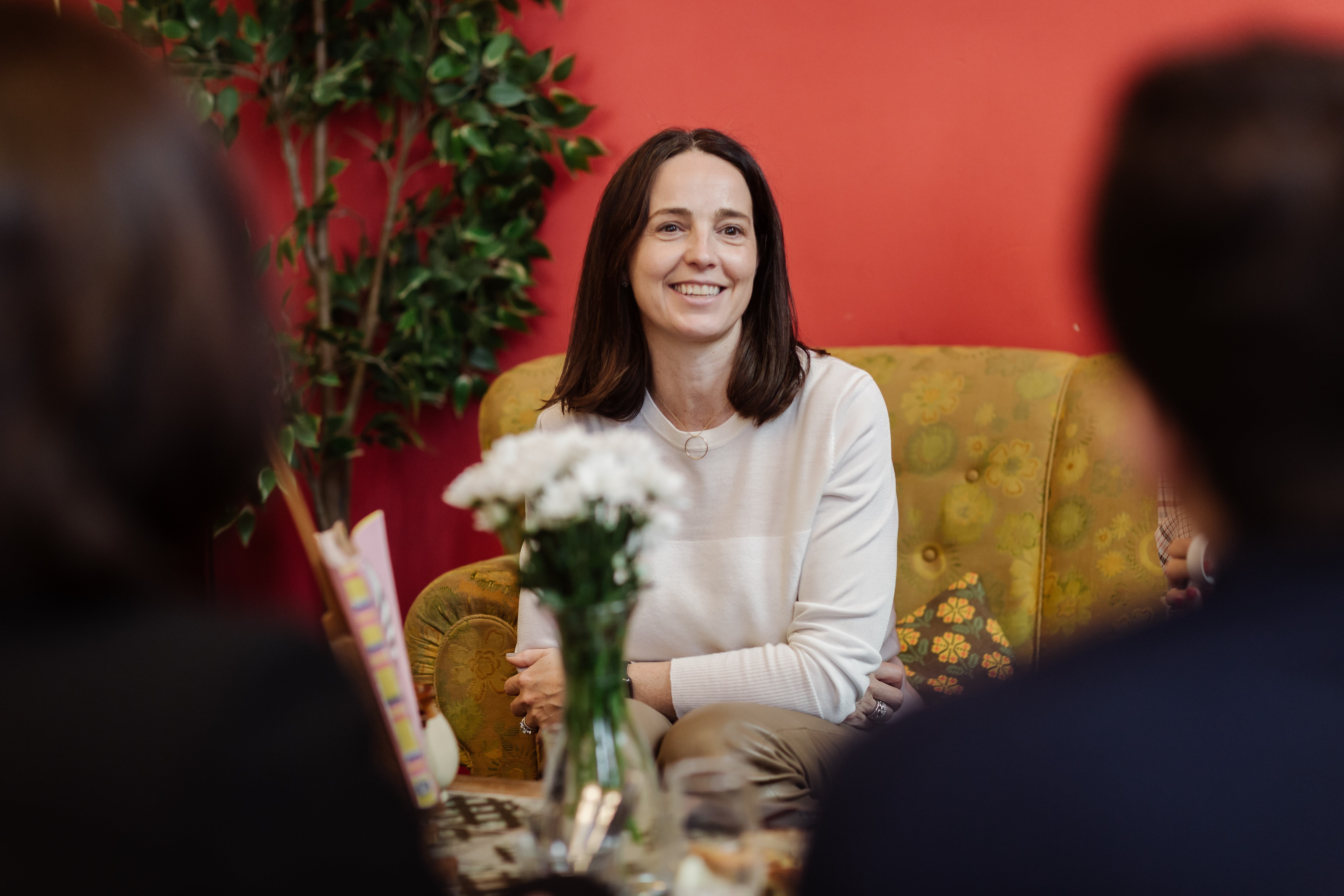
She held executive roles at Goldman Sachs, as well as leadership positions in both London and South Africa at McKinsey, which then funded two years of business school for her in the US, where she “fell in love with Silicon Valley”.
But, she says: “I was one of very few women engineers in my class. Then I went into finance – no women. Then I went into tech – no women.”
Prior to serving as CEO of Nextdoor, Friar was CFO of Jack Dorsey’s fintech company Square. Despite having already been successful in raising over $3bn for the company, she remembered a time she pitched to investors, and afterwards “they only wanted to speak with Jack”.
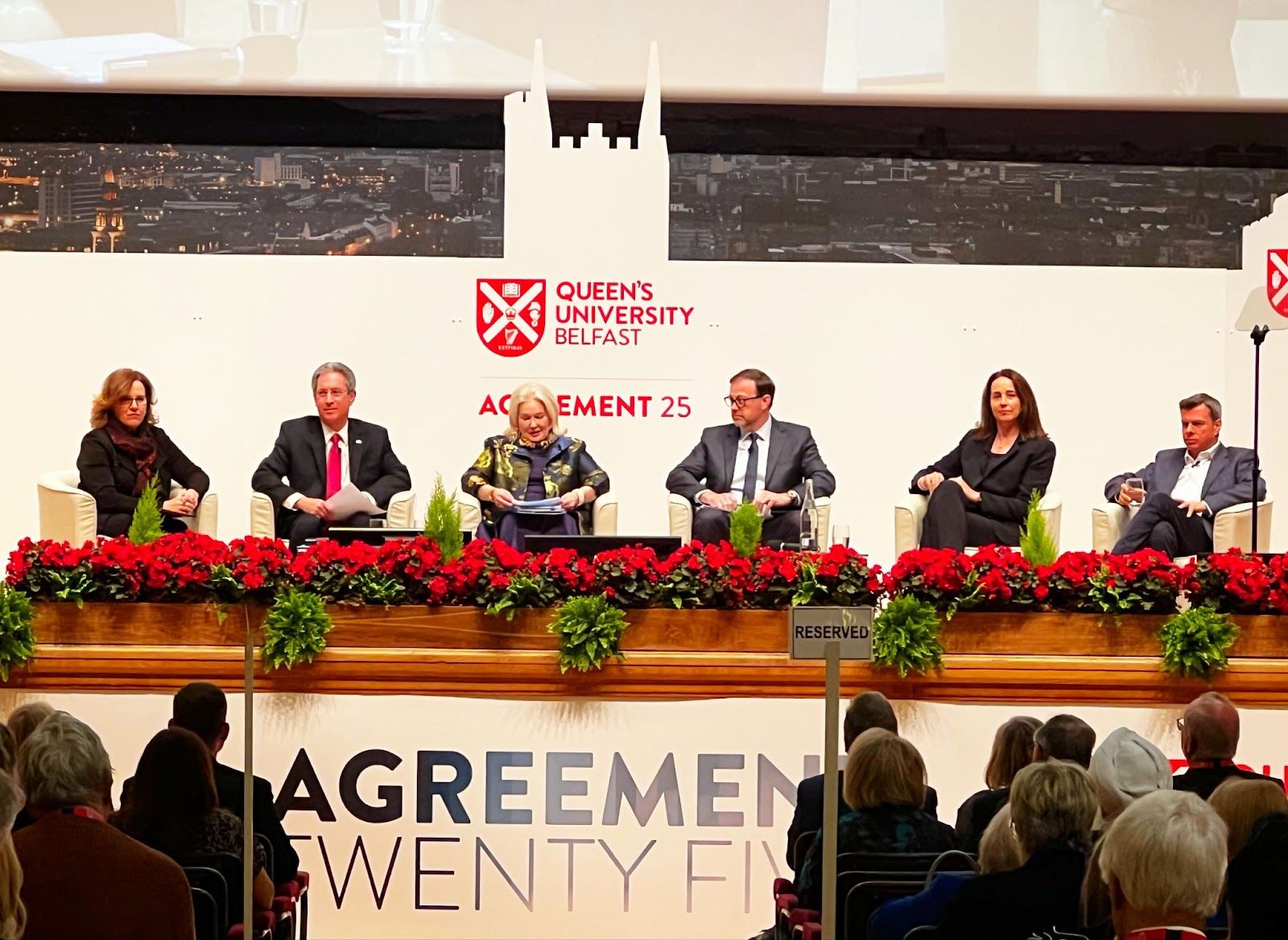
Friar cites examples where she had made comments in business meetings and “a few moments later a man says the same thing and it’s like he cured cancer”.
She says she has had to learn to stay true to her values and is “better at calling those things out now. It’s about not being afraid to have that conversation.”
”That doesn’t mean that path is going to be easy, because you could end up being the woman in the room who is ‘too strident’ or ‘too loud’,” she says. “I do have an ‘I’m just going to do it’ attitude. Then, the minute you get a seat at the table, you grab someone else and pull them up.”
In a bid to make lasting change, Friar founded Ladies Who Launch in 2013, a not-for-profit that empowers, supports and provides a community for female and non-binary entrepreneurs.
But there is clearly still a long way to go – last year, companies founded solely by women garnered just 2.1 per cent of funding invested in start-ups in the US, according to the latest PitchBook data.
“The whole chain is male-dominated,” she says. “It’s getting better, but it’s not good enough.”







